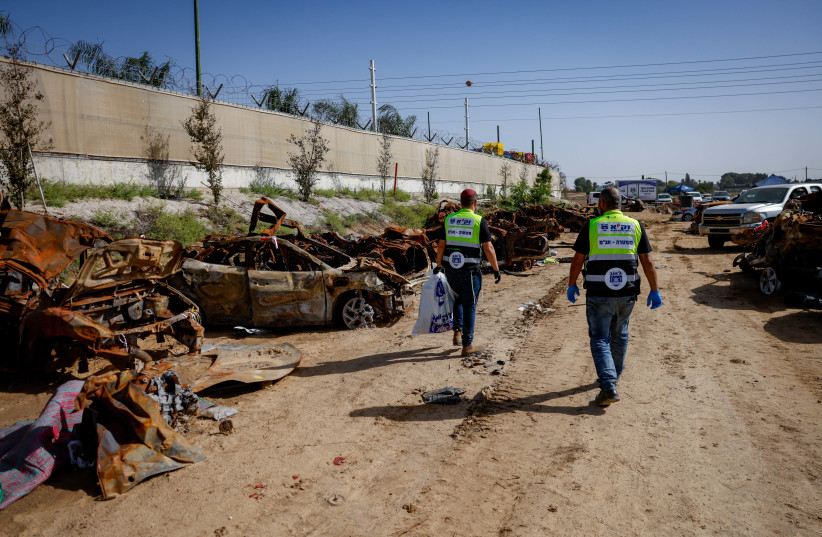October 7 changed the lives of Israeli children. Some have been wounded, others have lost family members, and all have in some measure, witnessed savagery and endured horrors that no child should experience.
War disrupts children’s mental health. Since October 7, 19,000 Israeli children have been diagnosed with severe psychological symptoms such as PTSD, severe anxiety, grief, severe functional impairment, and suicidal tendencies.
Additionally, 25% of Israeli parents participating in a large survey reported an increase in the frequency of anger outbursts in their children. Almost a fifth reported that their children were suffering from depression to a high or very high degree.
The physical injuries caused by the October 7 attack might be permanent or temporary, but untreated, the psychological wounds are likely to become generational.
Psychological and emotional support by highly skilled professionals specializing in child trauma is critical; without it, the massacre is likely to haunt those kids for many years to come and impede their emotional development and growth.

This is one of our missions at SASA Setton: to step up and find all possible solutions for these hidden casualties. The pioneering, socio-educational organization is dedicated to supporting children’s education and resilience during hospitalization.
Established in 2009 by Philippe and Hilda Setton, SASA Setton provides a unique opportunity annually to over 140,000 hospitalized from 41 schools across the country, in varied hospital settings, such as general, psychiatric, and rehabilitation facilities.
Led by director-general Omer Givati, SASA Setton’s current focus is on the child casualties of the conflict and developing new initiatives to meet these tremendous challenges.
Since October 7, Barzilai Medical Center has consistently reported 200 child trauma cases per week, necessitating specialized psychiatric hospital care which separates the children from their families and communities. This translates to an anticipated total of 9,000 cases by year’s end. Barzilai is the only active center in the country providing mental health services of this type to hospitalized children.
To address the challenge posed by these staggering numbers, SASA Setton has forged a partnership with the hospital to provide training for mental health professionals in trauma-focused Cognitive Behavioral Therapy (CBT).
Thousands of children's mental health affected by ongoing war
This initiative addresses the complex psychological requirements of the thousands of children affected by the crisis, ensuring they receive the most effective care possible. To fully address their needs, a comprehensive educational solution is offered through a school within the hospital, operated by the Education Ministry in partnership with SASA Setton.
Post-October 7, SASA Setton is also focused on restoring and upgrading early childhood facilities for ages 3-6 in the Gaza border communities, making them centers of excellence: safe, stimulating environments where children can heal and thrive. They will be equipped with cutting-edge technology and novel pedagogical approaches, promoting emotional healing.
This forms part of the government and municipal strategy to assist in the recovery of communities, post-October 7, offering assistance to attract young families back to their homes, once it’s safe to return.
In my personal and professional view, education is the cornerstone for restoring a sense of normalcy. It offers children the structure and familiarity they desperately need during uncertain and traumatic times. This significance is amplified during crises when education serves as a vital source of resilience and steadfastness for our children and youth.
Our children are not just the future, they are its architects.
They will guide our nation, manage our healthcare, and shape our social systems. They deserve the fundamental right to learn, to find joy, and to heal.
The writer is the deputy chair and representative of the donor family at SASA Setton. sasasetton.org.il/en
